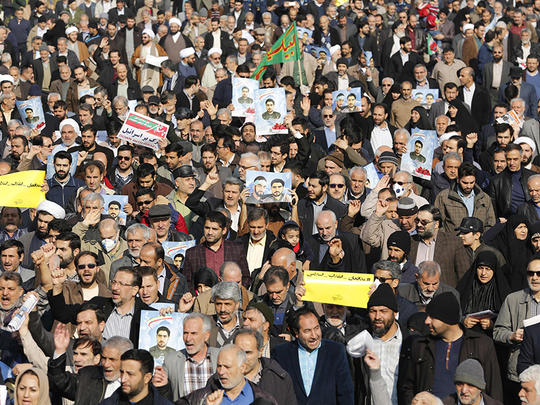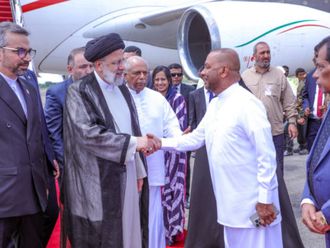
Tehran: The Iranian parliament held a closed-door meeting on Sunday to discuss the deadly protests that hit the country last week, while more pro-regime rallies were held in several cities.
Lawmakers interrogated Interior Minister Abdul Rahmani Rahmani Fazli, Intelligence Minister Mahmoud Alavi and secretary of the Supreme National Security Council Ali Shamkhani, parliament’s ICANA website reported.
Some voiced concern over the internet controls put in place during the unrest, including a ban on Iran’s most popular messaging app, Telegram, which officials said had been used to incite violence.
“The parliament is not in favour of keeping Telegram filtering in place, but it must pledge that it will not be used as a tool by the enemies of the Iranian people,” Behrouz Nemati, spokesman for the parliament’s presiding board, wrote on Instagram, which was also temporarily blocked during the unrest.
Many Iranians use Telegram as their main source of news and a way of bypassing the highly restrictive state media, with almost a third of Iran’s 80 million people using the app daily.
Some 9,000 online businesses have been disrupted by the blocking, semi-official news agency ISNA reported, quoting a report by the culture ministry’s digital media centre.
The protests began on December 28 over economic issues before quickly spiralling out of control and turning against the regime as a whole, leaving 21 dead and hundreds arrested.
Pro-government rallies were again held in several cities on Sunday, this time in Qazvin, Rasht, Shahr-e Kurd and Yazd.
Iran’s Revolutionary Guard said Sunday that the nation and its security forces have ended the wave of unrest linked to anti-government protests that erupted last month.
In a statement on its website, the Guard blamed the unrest on the United States, Israel and Saudi Arabia.
The Guard is a powerful paramilitary force loyal to the supreme leader, Ayatollah Ali Khamenei. Many of the demonstrators protested against the Guard’s massive budget, its costly interventions across the region, and against the supreme leader himself.
Hundreds of people have been detained since the protests began.
They include around 90 university students, reformist lawmaker Mahmoud Sadeghi was quoted as saying by the semi-official ISNA news agency.












